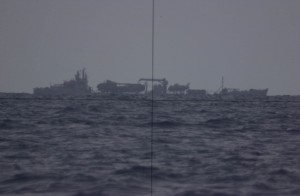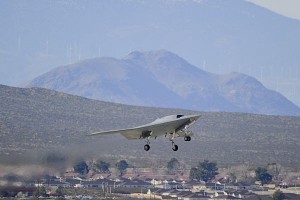 Failure to tether the U.S. Navy to a clear, large-scale and long-term strategy has reduced overall naval effectiveness as a strategic asset, raising a risk of the fleet being frittered away in activities that do not directly support strong strategic (longer-term) national objectives. (For background go here, here, and here)
Failure to tether the U.S. Navy to a clear, large-scale and long-term strategy has reduced overall naval effectiveness as a strategic asset, raising a risk of the fleet being frittered away in activities that do not directly support strong strategic (longer-term) national objectives. (For background go here, here, and here)
In years past, the Navy fought to align long-term national strategy with the Navy’s key priorities. But the modern-day U.S, Navy, being content to serve as an “all-hazards crisis response force”, has, in some respects, moved away from setting strategy that might inform wider national security goals.
This failure carries longer-term consequences that we will discuss today and tomorrow. Here’s the first:
A generation of sailors have grown up in a Navy that lacks a guiding mission.
I am not the first to advance concerns about a generational shift in the Navy…there is a a widely-trafficked argument out there in the military blogosphere that the Navy’s adoption of a “no fault” officer corps, combined with a perceived shift in Naval focus towards things like 1) respect for women or 2) professional demeanor or 3) diversity has drummed warfighters from the ranks–and that a generation of “politically correct” sailors will be unable to fight. That concern is totally overblown (I think Nimitz had the mix right–in person he may have been as raunchy and inappropriate as the best of ’em, but in public he was unfailingly professional). The more serious concern is that there is a generation of sailors out there who have come up in a Navy that has not directly engaged in strategic debates–this should be a matter of real concern for naval leadership and other tastemakers.
Over the course of the U.S. Navy’s history, the peacetime Navy developed big plans (i.e. Plan Orange, the Lehman-era anti-Soviet push, etc.) that, in turn, helped shape national priorities. In strategic debates, the Navy had a great history of digging in and battling for what it considered to be best for the nation.
That has now changed. Over the past 25 years, the Navy has been operating in the “do anything anytime” mode, and turning inward, away from strategy, to focus on internal “craft” and “skills” as articulated in the CNO’s Sailing Direction of “Warfighting First”. (You know, tactics!) If you don’t believe me, examine Air-Sea-Battle. Look at the enormous amount of energy and resources that have gone into what is, basically, an effort to improve linkages between the Navy and Air Force. And that is fine–Air-Sea-Battle improves the craft, and may help to win an engagement or two.
But shouldn’t there be a larger goal here beyond tactics?
While the Navy races ahead to better integrate with the Air Force and Army aviation, shouldn’t the Navy be equally focused on tweaking the alignment of national strategic policy so it conforms with available resources and aligns with what the Navy can do over the longer-term? I don’t see it.
Frankly, the Navy is not doing well in aligning national priorities with naval ones. It isn’t a duty that excites the line. In fact, we have gotten to a point where State Department engagement is seen as an exile. Rear Admiral Samuel Perez’s posting to State as the Deputy Assistant Secretary of State for Plans, Programs and Operations is seen by some as a career-ending “reward” for his famous anti-LCS paper. (It shouldn’t be. If the Navy wants to start engaging in a battle to guide national strategy, it becomes a key post in pushing the Navy’s agenda ahead.)
The counter-argument is simple–national strategy is not the Navy’s responsibility. “Thanks, we’ll just keep our noses out of the politics, focus on “Warfighting First, Operate Forward and Be Ready”, and do whatever the President asks”.
And, while that is all well and good, tactics do not and cannot decouple from national strategy. The Navy has got to fight for its strategic priorities, and must get back into the business of defining some longer-term strategic goals for the security of the nation. The Navy cannot leave strategy to the Joint Staff
So, when a generation of sailors come up, with no real experience in setting strategy, no apatite for strategic debate and totally unaware that the Navy has, historically, wielded a far stronger influence in defining strategy and setting national priorities than the other services, it is a problem. Put plainly: The Nation is ill-served by a Navy full of tactical masters who are strategic idiots. And certainly the Navy wants to be more than “order-takers” and “service providers” for a strategy that is uninformed by naval expertise.
Look. Plan Orange helped guide national policy. So did the effort to get Navy into strategic deterrence. So did Lehman’s 600-ship Navy.
Why? In terms of long-term strategic importance, the Navy matters far more than the Air Force or the Army. If we were, say, China or Russia, with long stretches of contested land borders and a history marked by hostile invasion, Army-derived strategies would be a far more important driver of wider national strategy.
The sea is America’s border, and it is being contested like never before. As such, the Navy deserves more than just a seat at some Joint-Service table. It needs to be the dominant service in setting defense strategy, and then fighting to get that strategy recognized as a national strategic goal.
But the Navy, right now, is at a crossroads–either it can continue, contentedly being frittered away as a crisis-response tool–or the Navy can engage strategically and, from there, define a strategic concept that subsequently informs larger national priorities.
But the longer the Navy waits, those with the institutional knowledge of how the Navy can engage and inform national strategy dwindle away. In contrast, the Chinese naval leadership have a far clearer national mission spelled out for them, and that, I am afraid, is a trellis for greatness.
It is my hope that the Navy’s current senior leadership understand this, and that they are doing what they can to change course. I think the “Green Fleet” initiative was a good start in, at least, demonstrating that the Navy’s strategic choices can impact national debates. The emerging battle over the unmanned strike aircraft requirements also offers hope that the Navy is waking up and taking ownership of long-term national security strategy.
But it is tough to undo a quarter century of busily accomplishing little.
